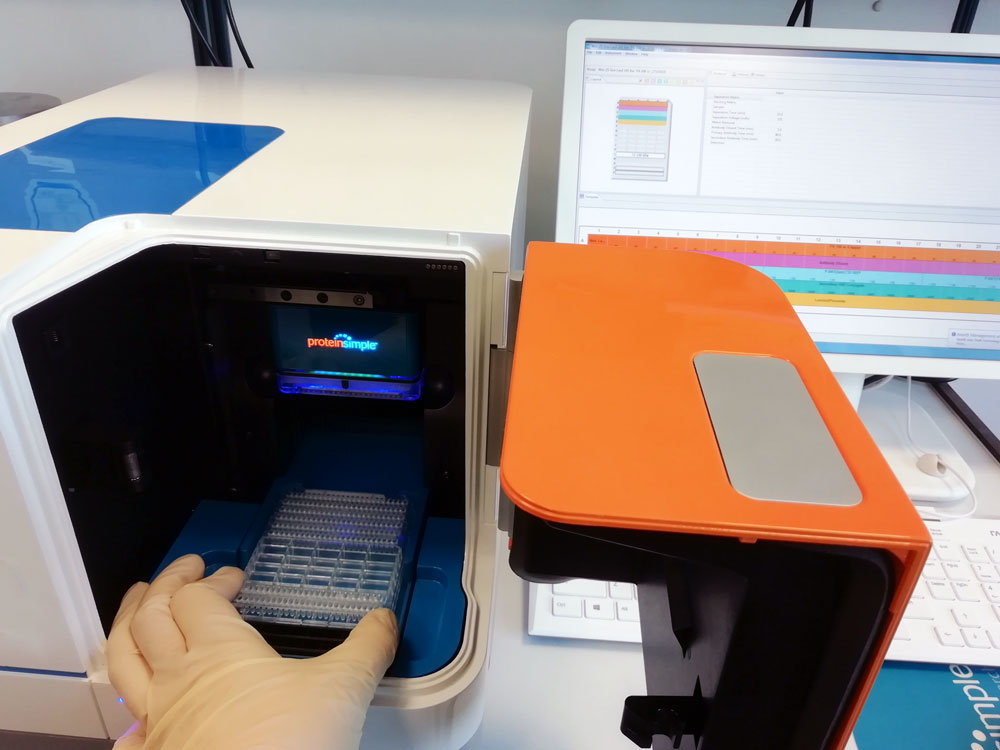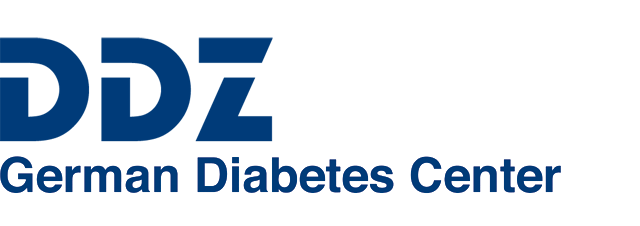
The research group Inflammation investigates the role of inflammation-related process in type 2 diabetes and its complications in a translational approach.
We characterise the predictive value of biomarkers of subclinical inflammation for the incidence of type 2 diabetes and its complications in clinical and epidemiological studies. Additionally, we analyse the local impact of these biomarkers on metabolic and inflammatory processes in diabetes-relevant cells such as adipocytes, hepatocytes and myocytes.
Aims of research
- To assess the role of biomarkers of inflammation in the pathogenesis of type 2 diabetes and its complications (e.g. diabetic neuropathies, cardiovascular disease, depression)
- To investigate the impact of lifestyle and environmental factors as modulators of inflammatory processes
- To estimate the utility of novel biomarkers from different –omics technologies in the prediction of type 2 diabetes and its complications
- To analyse mechanistic links between biomarkers of inflammation, glucose metabolism and inflammation-related signaling pathways in insulin-sensitive cells
Previous work
Previous work of our group sharpened the concept that inflammation - as independent risk factor or induced by lifestyle and environmental factors - contributes to the development of type 2 diabetes and its chronic macro- and microvascular complications. We also aim to evaluate biomarkers of inflammation as promising therapeutic targets in disease prevention and treatment. In one recent study, we could show for the first time that proinflammatory cytokines predict the incidence and progression of distal sensorimotor polyneuropathy. These studies will be extended by multimarker approaches to identify diabetes-related genes, transcripts and proteins that can be used as novel biomarkers to improve the prediction of type 2 diabetes and its complications (with a focus on diabetic neuropathies). Furthermore, we characterise the function and relevance of novel biomarkers in diabetes-relevant cells using molecular and cellular approaches.
Team
Selected Publications
- Herder C, Hermanns N 2019. Subclinical inflammation and depressive symptoms in patients with type 1 and type 2 diabetes. Semin Immunopathol. 41: 477-489. https://doi.org/10.1007/s00281-019-00730-x
- Schlesinger S, Herder C, Kannenberg JM, Huth C, Carstensen-Kirberg M, Rathmann W, Bönhof GJ, Koenig W, Heier M, Peters A, Meisinger C, Roden M, Thorand B, Ziegler D 2019. General and Abdominal Obesity and Incident Distal Sensorimotor Polyneuropathy: Insights Into Inflammatory Biomarkers as Potential Mediators in the KORA F4/FF4 Cohort. Diabetes Care. 42: 240-247. https://doi.org/10.2337/dc18-1842
- Herder C, Schmitt A, Budden F, Reimer A, Kulzer B, Roden M, Haak T, Hermanns N 2018. Longitudinal associations between biomarkers of inflammation and changes in depressive symptoms in patients with type 1 and type 2 diabetes. Psychoneuroendocrinology. 91: 216-225. https://doi.org/10.1016/j.psyneuen.2018.02.032
- Herder C, Kannenberg JM, Carstensen-Kirberg M, Strom A, Bönhof GJ, Rathmann W, Huth C, Koenig W, Heier M, Krumsiek J, Peters A, Meisinger C, Roden M, Thorand B, Ziegler D 2018. A Systemic Inflammatory Signature Reflecting Crosstalk Between Innate and Adaptive Immunity Is Associated With Incident Polyneuropathy: KORA F4/FF4 Study. Diabetes. 67: 2434-2442. https://doi.org/10.2337/db18-0060
- Herder C, Kannenberg JM, Huth C, Carstensen-Kirberg M, Rathmann W, Koenig W, Heier M, Püttgen S, Thorand B, Peters A, Roden M, Meisinger C, Ziegler D 2017. Proinflammatory Cytokines Predict the Incidence and Progression of Distal Sensorimotor Polyneuropathy. KORA F4/FF4 Study. Diabetes Care. 40: 569-576. https://doi.org/10.2337/dc16-2259
- Herder C, de Las Heras Gala T, Carstensen-Kirberg M, Huth C, Zierer A, Wahl S, Sudduth-Klinger J, Kuulasmaa K, Peretz D, Ligthart S, Bongaerts BW. C., Dehghan A, Ikram MA, Jula A, Kee F, Pietilä A, Saarela O, Zeller T, Blankenberg S, Meisinger C, Peters A, Roden M, Salomaa V, Koenig W, Thorand B 2017. Circulating Levels of Interleukin 1-Receptor Antagonist and Risk of Cardiovascular Disease: Meta-Analysis of Six Population-Based Cohorts. Arterioscler Thromb Vasc Biol. 37: 1222-1227. https://doi.org/10.1161/ATVBAHA.117.309307
- Herder C, Dalmas E, Böni-Schnetzler M, Donath MY 2015. The IL-1 Pathway in Type 2 Diabetes and Cardiovascular Complications. Trends Endocrin Met. 26: 551-63. https://doi.org/10.1016/j.tem.2015.08.001
Cooperations
- Deutsches Herzzentrum München: W. Koenig
- Deutsches Institut für Ernährungsforschung, Nuthetal: K. Norman
- Deutsches Krebsforschungszentrum, Heidelberg: B. Schöttker, H. Brenner
- Diabetes-Akademie Bad Mergentheim: N. Herrmanns, B. Kulzer
- Forschungsinstitut für Kinderernährung, Dortmund: U. Alexy
- Helmholtz Zentrum München: B. Thorand, A. Peters, H. Grallert, A. Schneider S. Hauck
- Institut für umweltmedizinische Forschung, Düsseldorf: T. Schikowski
- Maastricht University Medical Centre+ (MUMC+), Maastricht, NL: Kristiaan Wouters, Nicolaas Schaper, Coen Stehouwer
- Steno Diabetes Center Copenhagen, DK: D. Visitisen, K. Faerch
- Universität Leipzig: M. Blüher
- Universität Paderborn: A. Buyken
Project Funding
- German Research Association (DFG)
- German Diabetes Association (DDG)
- German Center for Diabetes Research (DZD)
- Sanofi
Teaching activities at Heinrich Heine University Düsseldorf
- Seminars „Epidemiology, medizinische Biometrie und medizinische Informatik”, Studienblock „Mensch und Umwelt”, degree course Medicine (Herder)
- Lectures „Epidemiology of diabetes and cardiovascular diseases”, module EP3 “Epidemiology/prävention”, degree course Public Health (Herder)
- DDZ seminar (Herder)
- IKD seminar (Herder)
